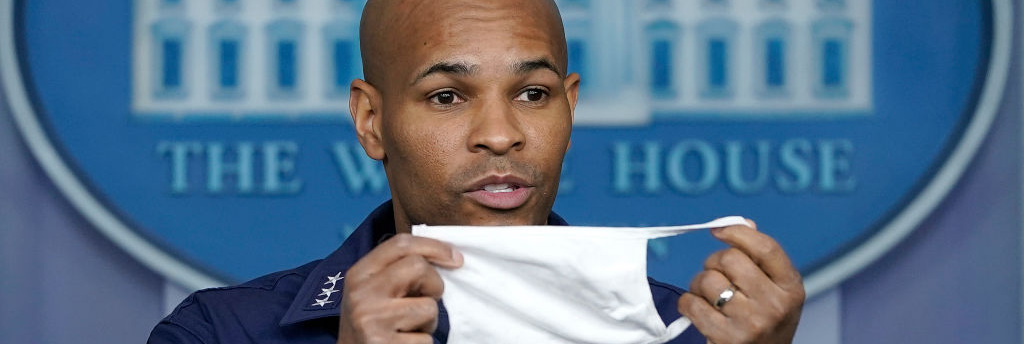Most Americans expect that recovering from the coronavirus epidemic will take the United States a long time. They also seem to understand that restrictions are necessary.
Most Americans are taking care: more this week are taking the precaution of wearing face masks in public. About three in five (61%) adults say they are doing this – up eight points since last week (53%), when it jumped 19 points from the previous week (34%).
The increase came after the Centers for Disease Control and Prevention recommended the use of cloth face masks when out in public. This week, for the first time, a majority (56%) of Republicans are wearing face masks. Even more Democrats (74%) are wearing them.
But there is skepticism. When those not wearing face masks in public are asked to say in their own words why not, the largest number claim they simply don’t go out. Others say they do not have a face mask or haven’t been able to buy one. But there are some who don’t believe face masks are necessary where they live, do not believe they are effective or distrust the government’s advice.
Most Americans (82%) say wearing a face mask is at least somewhat effective in limiting the spread of COVID-19, but just 28 percent believe they are very or extremely effective. Those who don’t think face masks are effective are the ones who aren’t wearing them. Two in three of those who see some effectiveness say they have worn a face mask; only about a third of those who don’t think they are effective have worn one.
Belief in face mask effectiveness also differs by party: just as Democrats are more likely than Republicans to wear face masks, they are also more likely to believe (or hope) they are effective.
The partisan difference is even larger on other questions about rights and isolation. For example, about two in five Democrats (42%) find the stay at home orders very effective, but less than one in five Republicans agree. More than a third of Republicans—compared with 21 percent of US adults overall—find the stay-at-home orders to be a violation of their constitutional rights.
These individuals who see the orders as a violation of liberties are in the minority compared to the general population (just 21% feel it is a violation of constitutional rights). However, that feeling is especially strong with GOP men (46%), Republicans who live in the West (43%) and in rural areas (40%), and those who describe themselves as “very conservative (49%).”
Related: Close to two in three Americans expect face masks to be a normal part of life for the next 12 months
See the toplines and crosstabs from this week’s Economist/YouGov Poll
Image: Getty









